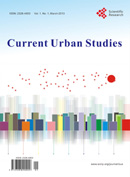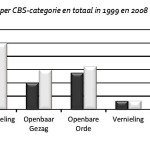Mara Forbes, Ariana MacPherson & Noah Schermbrucker – City Finance That Works For And With The Poor
The global economic system is inherently unequal and the poor bear the full brunt of this nequality. In other words, the way finance flows and the systems that perpetuate resource distribution are inherently weighted against inclusion of the poor. Banks do not supply loans on terms affordable to slum dwellers, cities sink budgets into formal taxpaying areas rather than slums while policies, rules and regulations prop up a grossly uneven distribution of wealth. Traditional market finance does not, and in all likelihood cannot, work for the poor on a city scale – slums continue to grow, as does the gap between rich and poor, north and south. The problem is not poor people’s inability to access the global economy but the formal global economy’s inability to provide solutions that are flexible enough to include the poor.
Read more (PDF-format): http://www.sdinet.org/media/CityFundsReport_SDI_032014.pdf
Urban Think Tank Introduces The Empower Shack To The Slums Of Western Cape
designboom.com. March 8, 2104. international studio urban think tank led by alfredo brillembourg and hubert klumpner are currently exhibiting the ‘empower shack‘ at the galerie eva presenhuber in zurich. the project is developed as an adapting response to urban informality, offering not only improved housing but a strategy that allows the citizens of self-built urban communities to dynamically structure their urban environment as an instant response to their needs. the empower shack was a largely collaborative project between U-TT, south african NGO Ikhayalami (‘my home’), transsolar, brillembourg ochoa foundation, meyer burger, the BLOCK ETH ITA research group, and videocompany. over the course of extensive research and close communication with community leader phumezo tsibanto, a prototype was developed featuring a two story metal-clad modular wood frame structure that is economical for the residents and can be self-built. jumping back in scale, the project also features a master plan that begins to structure informally developed neighborhoods to include courtyards, public space, and improved circulation through a ‘blocking out’ system.
read & see more: http://www.designboom.com/slums-western-cape
University of Witswatersrand – Publications Archive / Housing Bibliography
The Housing Bibliography has been produced to cover a wide range of housing-related literature, e.g. housing policy, housing finance, social housing, informal settlements.
The material has been divided into two phases:
1) Up to 1999; and
2) 1999 – 2003.
Read more: http://www.wits.ac.za/publications_archive.html
Current Urban Studies – International Journal – Open Access
 Current Urban Studies (CUS) is an international journal dedicated to the latest advancement in the study of urban studies. The goal of this journal is to provide a platform for scientists and academicians all over the world to promote, share, and discuss various new issues and developments in different areas of urban studies.
Current Urban Studies (CUS) is an international journal dedicated to the latest advancement in the study of urban studies. The goal of this journal is to provide a platform for scientists and academicians all over the world to promote, share, and discuss various new issues and developments in different areas of urban studies.
Read more: http://www.scirp.org/journal/cus/
Urbanisation En Afrique / Urbanization In Africa (Part 1)
Part 2: http://youtu.be/yCgWnX5orqY
Centre For Civil Society, Durban – Welcome To The CCS Online Library
 The Centre for Civil Society in Durban spans scholarly and civic and social movement activism most comprehensively, and is quick to report and analyse current events, trends, and projects.
The Centre for Civil Society in Durban spans scholarly and civic and social movement activism most comprehensively, and is quick to report and analyse current events, trends, and projects.
The online library: http://ccs.ukzn.ac.za/Library
CCS website: http://ccs.ukzn.ac.za/





